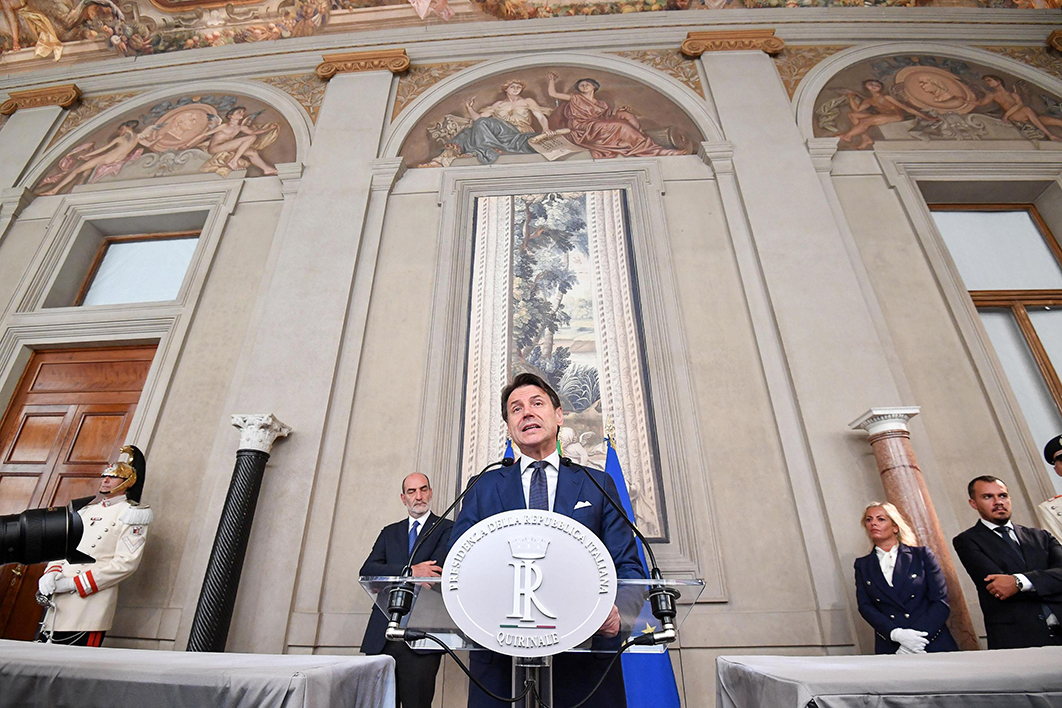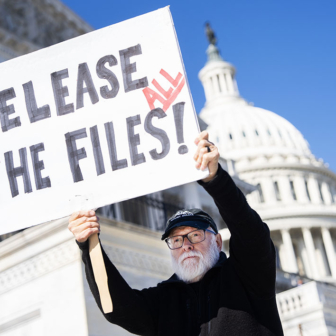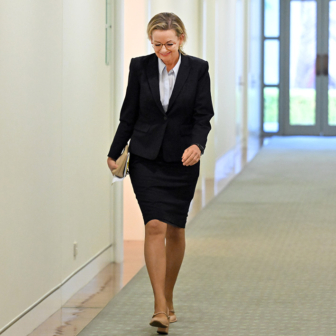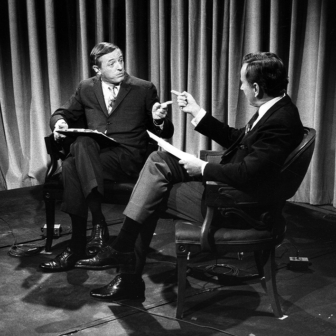When Italy’s interior minister Matteo Salvini decided to pull the plug on the country’s year-long experiment in populist government, he calculated that no one else would have the numbers or the desire to form a new administration. The president would have no alternative but to call an early election and Salvini’s right-wing League would romp home, boosted by its leader’s tough stance on undocumented immigrants and on all the other hobby horses of the left-leaning elites.
We now know that the League’s fiery leader appears to have miscalculated. His former allies in the left-wing populist Five Star Movement were so keen to avoid an early election that they did the unthinkable and reached out to the Democratic Party, the centre-left party that epitomises everything they and the League despise about Italy’s establishment. Within days, Five Star and the Democratic Party were sorting out the distribution of ministries according to what Italians call an inciucio — a squalid, unpleasant deal. A populist-left coalition now seems to be the most likely outcome.
Creating a new government from the ashes of a previous one, without returning to the polls, is a tradition that goes back to the birth of the Italian state in 1861. But this time the reversal has taken on particular significance because it marks the end of a populist experiment. The alliance between the right-wing League — the rebranded, formerly secessionist Northern League — and Five Star had been predicated on the assumption that populists of the left would have enough in common with populists of the right to keep government ticking over indefinitely. And, from May 2018, that assumption appeared to be at least credible. Sure, Five Star never really bought into the League’s xenophobia and the League never embraced Five Star’s most whacky anti-capitalist rhetoric. Yet the values they shared saw the marriage last for more than a year.
The similarities between the two populist movements were considerable and, for a while at least, far more important than traditional left–right divisions. It’s true that the two parties’ hostility to Europe, and to the West in general, came from very different places: Five Star’s anti-Americanism would have been familiar to anyone caught up in Italian student politics in the 1980s, and the League’s far-right notions of Italian grievance have been bubbling away ever since the country’s experience of national socialism from the 1920s to the 40s. Yet the two parties shared common ground on foreign policy and had a semblance of unity on domestic issues. The things that united the pair enabled them to establish what became known as the yellow–green government (yellow being the colour of Five Star and green that of the League).
Yet there were always going to be differences. When I was covering European affairs from Brussels a few years ago, the Five Star parliamentarians I met came across as hard-working and determined to change EU institutions from within. They were idealistic and consistent in their disdain for free markets, infrastructure spending and the English-speaking world in general. They were pro-Russian purely because Russia was an adversary of the United States (the enemy of my enemy…) and many of them appeared happy to embrace conspiracy theories that no established political party would touch. At the end of one interview, for instance, a Five Star member of the European Parliament mentioned “chemtrails” — the utterly discredited belief that condensation trails from airplanes contain biological agents released by governments. The same MEP then made a passing reference to Malaysia Airlines flight MH17, shot down by a Russian missile in 2014: “We’ll never really know what happened,” he said. Did the Americans do it? Who knows? I don’t know. Do you? Who can say? There’s so much misinformation out there…
Then there was the George Soros puppet-master stuff that would sound anti-Semitism alarm bells in any other Western democracy. Yet on that front Five Star and the League appeared to be in lock step. Salvini, too, made no secret of his anti-European, anti-Western outlook, and the League’s contempt for the European Union was expressed by simply not showing up in Brussels. As for the party’s pro-Russian bona fides, they were on display recently when a BuzzFeed investigation found that Gianluca Savoini, an aide to Salvini, had taken part in negotiations for the clandestine funnelling of Russian funds to the League. It wasn’t a good look, but Salvini laughed off the revelations before throwing Savoini under a bus.
The cleavage between the two parties was felt more keenly in the policy area broadly defined as giustizia — justice not in the sense of crime and punishment, but in the sense of the politicisation of the judicial system and its complex relationship with Italian politics. Five Star’s founder, comedian Beppe Grillo, envisaged a party firmly in the camp of giustizialismo, the untranslatable term representing the idea that prosecuting magistrates deserve greater powers to pursue political corruption — indeed, to pursue crimes of all kinds. The League, with its origins as a northern secessionist party that saw Rome’s elites as a foreign enemy, was also well disposed towards giustizialismo, at least in theory, and the party had shown little sympathy for its former coalition partner, Silvio Berlusconi, when he found himself on the receiving end of judicial probes.
But investigations by unelected and highly politicised judges stop being fun when they come knocking on your own door — as the League discovered in 2016 when it was targeted over its sometimes-murky funding arrangements. The courts’ more recent bids to overturn Salvini’s blocking of asylum seeker boats placed even more strain on League–magistrate relations — and, as a result, on the relationship between League and Five Star. Salvini’s stance towards the judiciary became one of extreme hostility.
Earlier this month the differences between the populist partners came to a head in an unexpected way. For years now, Italy has been struggling to build high-speed rail corridors — in the form of a project known as the TAV (treno alta velocità) — to get around saturated local lines. When and if completed, the TAV would take both passengers and goods from southern Italy to connections with France on the northern border — in other words, to EU markets. It was a project that Five Star was always going to oppose: the combination of free trade, capitalism and large infrastructure was toxic for its members. (Could Soros be funding it? Who knows? I don’t know. Do you? Who can say? There’s so much misinformation out there…)
Yet Salvini and the League were adamant that the TAV should proceed. Somewhere, tucked away in the League’s political memory, were the legitimate grievances of northeastern Italian businesses that had struggled with poor infrastructure in attempting to get their products to European markets. By the beginning of August the divisions within the coalition over the TAV were threatening to split the government, with Salvini pitted against the other deputy prime minister, Five Star’s Luigi Di Maio. Meanwhile, Grillo — who isn’t a member of parliament but is effectively the co-owner of Five Star — was urging the party to hold the line on the project. The wheels of the coalition were coming off and Salvini started to make plans, buoyed by his party’s strong showing at the European elections in May.
Salvini didn’t do himself any favours during the days after he brought down the government. At a rally in the Adriatic city of Pescara, he said that fresh elections could grant him pieni poteri (full powers) to bring about real change. In most democracies that kind of talk would sound like a call for an electoral mandate to govern in his own right — and that’s presumably how Salvini meant it. But the words were strangely reminiscent of a 1922 speech by Benito Mussolini, whose plans for Italy always went beyond securing democratic mandates.
From that moment on it was up to the country’s president, a dignified former Christian Democrat from Sicily called Sergio Mattarella, to work out what to do. There are essentially three large blocks of votes in the Italian parliament: League, Five Star and the Democratic Party. To form a government, two of them needed to enter into a coalition.
Salvini could have been forgiven for thinking that elections were on the cards. In 2018 it took the two populists eighty-eight days to form a coalition, and only after all other solutions — including an alliance between Five Star and the Democratic Party — had been exhausted. In fact, those two parties concluded that the mutual contempt they had expressed so publicly over the years was, indeed, underpinned by actual contempt. For them ever to work together would amount to what Italians describe as swallowing a toad — and the likelihood of that happening appeared slim.
Then something changed. Perhaps it was the result of chemtrails released by the CIA over Rome, but Five Star appeared ready to set aside its hostility towards the Democratic Party to avoid an early election. In fact, the grillini were now very keen for the legislature to go its full term, possibly suspecting that the 2018 general elections had been the party’s high-water mark and that the protest vote it had marshalled so effectively could be suctioned up by the League and its firebrand leader. Importantly, there were no guarantees that the north–south divide between the two parties, with Five Star dominating the south and the League performing best in its northern stronghold, would hold.
Looking at things clinically, there was nothing particularly untoward about the change of government. No single party emerged from the 2018 election as the frontrunner, so it’s hard to claim that the new government, assuming it is established in coming days, has overturned the will of the people. The alliance between the Democratic Party and Five Star — if Five Star’s members and President Mattarella agree to sign off on it — is as democratically legitimate as the Five Star–League coalition was before it.
Yet the manoeuvre did come with a loss of face — not so much for the Democratic Party, whose voters are old-school enough to accept a level of pragmatism, but for Five Star, whose followers have taken to the party’s online chat rooms to express their dismay. And that’s the tricky part of managing the expectations of a populist movement: encouraging your followers to lash out at a common enemy is easy; turning around and asking party members to embrace that enemy is a much bigger ask.
The one humiliation that the Democratic Party will have to accept is the reappointment of Giuseppe Conte, the prime minister chosen in 2018 by the two populist parties as the vanilla candidate they could all agree on. As prime minister, Conte’s job was to keep the peace between the two populist formations — and, on that front, he got the government from A to B for a year. But while he was a compromise candidate, he had always been a Five Star man and his loyalties remained firmly on the yellow side of the governo gialloverde.
As prime minister, Conte won’t be expected to lead the country, something that will be done by the top officials of the two parties making up the new governing coalition. That’s assuming the Democratic Party secretary Nicola Zingaretti survives the feud currently under way with former leader and deposed prime minister Matteo Renzi. Conte’s one job will be to keep the peace and present the world with a credible public face. After meeting President Mattarella this week, Conte said he hoped to lead a government that will focus on new directions — by which one can only assume that he plans to break with the most unpalatable aspects of life with the League, starting with Salvini’s anti-immigrant and anti-Roma invective.
Yet while both the Democratic Party and Five Star may be ideologically of the left, the Democratic Party’s pro-European, pro-Western outlook — policy positions that recent leaders had to take on the party’s communist diehards to establish — may yet create cultural divisions that prove difficult to overcome. As for the future of the TAV — again, deep-seated divisions are in play between the two parties. But ultimately it will be Five Star’s history as a protest party that will prove the biggest challenge. For populists, the transition from opposition to government may ultimately prove too painful to manage. •




